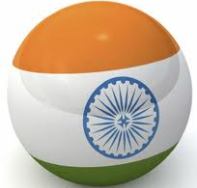Kerala government got nod for Islamic banking
The government of kerala has got a go-ahead from the RBI to launch a financial institution following the principles of Islamic finance. Cheraman Financial Services Limited (CFSL) will be floated by Kerala State Industrial Development Corporation to function as a non-banking finance company.Industries minister PK Kunhalikutty and CFSL chairman P Mohamad Ali told reporters here that the firm would function as a non-banking finance company with an authorised capital of Rs 1,000 crore.
CFSL has already received clearances from Reserve Bank of India, the Securities and Exchanges Board of India and the wakf board, the chairman said. The Kerala State Industrial Development Corporation will be the single largest shareholder in the company, holding 11 percent shares. The other individual shareholders can hold a maximum of 9 percent shares.
What is Islamic banking
Islamic banking, alternatively known as interest free
banking or finance, is a banking system, which
promotes profit sharing, but prohibits the
charging and paying of interest. This system is
based on the principles of Sharia Islamic Law,
which are derived mainly from the Holy Quran and the
“Hadeeth”, a compilation of the noted sayings of
Prophet Mohammad.
Islamic Banks everywhere
follow these principles in their business.
In Islamic banking, productive activities which
promote entrepreneurship, trade, commerce
and societal development are supported, while
those which earn income sans risk – such as
interest (Riba) bearing transactions – and
unproductive activities like speculation or
gambling are prohibited.
Basic tenets of Islamic banking
• Payment and receipt of interest is strictly prohibited.
• The business is based on profit and loss sharing.
• Certain industries, such as adult entertainment,
alcohol, and gambling are prohibited for investment.
This is why Islamic Banking is also referred to
as Ethical banking.
• Banks may not lease or lend any product that
they do not wholly own.
• Trading in debt is also not allowed, which is
why Banks do not deal in traditional bonds;
rather they have their own version of such
instruments called Sukuk (Islamic Bond).
• Interest free loans are
encouraged to spread financial inclusion.
Why India needs Islamic banking
While Islamic finance originates from core muslim
principles, it is also a workable model of
investment, based on risk sharing. The nations,
which have adopted Islamic finance, have done
so because it makes business sense. Islamic finance is all about encouraging and facilitating
investment in real economic activity and societal
welfare, while prohibiting investment in reckless
businesses such as gaming, alcohol and adult
entertainment or risky financial products like derivative contracts of the kind which led to the
2008 global economic meltdown.
Apart from being a viable alternative to capitalist
financial systems prone to extreme risks, the
interest-free solutions of Islamic Banking could
restore equilibrium in Indian society by providing
succour to debt-ridden farmers, labourers and
other marginalized groups. Hence, Islamic
Banking has potential as a tool of financial inclusion.
As per statistics, India was home
to nearly 177 million Muslims in 2010, making
it the country with the third largest Muslim
population in the world. A considerable number
of Indian Muslims either invest in non-interest
bearing accounts or donate the interest from
interest-bearing accounts to charity. There is an
opportunity for Islamic banks to attract funds
that interest paying conventional banks cannot.
Traditionally, Indians practised participatory
banking by creating cooperative banks, nonbanking financial institutions and micro credit
programmes; the same platform can be used to
introduce Islamic Banking.
According to the Planning Commission, India
is facing a funding gap of US$ 300 billion – or
30% – in meeting its infrastructure funding
requirement until 2017. Following the example
of countries such as Malaysia, Indonesia, UK,
France and Germany, India could use Islamic
financial products such as Sukuk (long term
bond) to fund infrastructure and other sectors.
Specifically, India could attract the Middle
East’s high investible surplus through Islamic
banking and finance.
This post contains the Indian current affairs of August 2013. These are short current affairs 2013 notes for quick review.
Incoming Search Keywords
1. Indian current affairs for Competitive Exams
2. Indian current affairs for Bank Exams
3. Indian current affairs for UPSC and PSC Exams
See more under Indian News






0 comments: